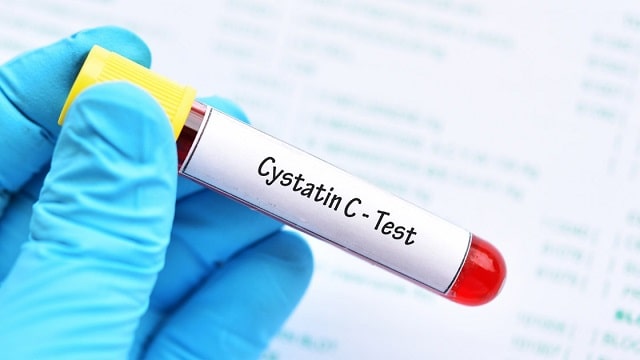What is Cystatin C Check?
The kidneys have a primary function to remove waste and toxins from the body. When this function experiences problems, it will certainly be very dangerous for the body. To find out whether the kidneys are still functioning properly, you can do a cystatin C check.
Cystatin C examination is done to find out how much cystatin C is in the body. The test is also done to check the function and work of the kidneys in the body. Cystatin C itself is a protein that is continuously made in the body. This type of protein can be found in blood, breast milk, and spinal fluid.
Cystatin C will be filtered through the glomerulus from the blood. Glomerulus is a collection of small blood vessels in the kidney. After absorbing all proteins and other substances, the glomerulus will produce a fluid called filtrate.
Through this fluid, the kidneys can reabsorb cystatin C, glucose, and other types of substances. All of them will then be taken to the bladder and come out in the form of urine. Meanwhile, the reabsorbed cystatin C will be broken down and will not return to the blood.
Well, the speed of the fluid filtration process is known as the glomerular filtration rate or GFR. When kidney function decreases, there will also be a decrease in GFR numbers. Meanwhile, cystatin C levels actually increase.
On the other hand, improvements in kidney function result in increased GFR and decreased cystatin C, urea, and creatinine. This is because the kidneys can clear them more effectively from the blood.
Why Do a Cystatin C Test?
Cystatin C check is done to find out how the kidneys are working and to detect whether someone is likely to have kidney disease or not. This examination is believed to be the examination option that is more capable of providing information about overall kidney function than other examinations.
However, in addition to checking cystatin C, it is also recommended to do a simple urine test known as ACR. This test needs to be done to find out how much protein is in the urine. It is true that the body needs protein. However, it does not come from urine, but from blood.
In addition, a body that only has a little protein in the urine can also be a sign that the kidneys are not filtering blood well enough. As a result, this is also an early symptom of a health problem in the kidneys.
The high and low levels of cystatin C in the body are influenced by many factors. These include body mass index, steroid use, hyperthyroidism, rheumatism, malignant diseases, HIV/AIDS, and certain metabolic problems such as hyperhomocysteinemia (elevated homocysteine). Meanwhile, cystatin C levels also tend to fluctuate in people with kidney transplants.
How is the Cystatin C Test Performed?
Having a simple blood test to check your cystatin C levels is the first step in testing your GFR. Creatinine is a waste product made by your muscles. Your kidneys should be able to maintain the level of creatinine in your blood. This level depends on your race, gender, and age.
High levels of cystatin C in the blood are closely related to decreased GFR as well as kidney dysfunction. This is because cystatin C is made throughout the body at constant levels, then excreted and broken down by the kidneys. So, cystatin C levels should remain stable in the blood if the kidneys are working optimally and the GFR is normal.
It should be noted that cystatin C is considered normal if its levels are between 0.6 to 1.3 milligrams per deciliter or mg/dL. High levels of cystatin C not only indicate an increased risk of kidney health problems but also heart health problems such as heart failure and death.
Things to Know and Prepare
It is true that cystatin C levels are not affected by body mass, age, or diet like other substances, including creatinine. This is why the results can be said to be quite accurate in assessing the work and function of the kidneys.
However, this examination is also not perfect. Because, the results can be affected by the consumption of drugs or supplements or even certain medical conditions. So, it is very important to tell your doctor about your medical history, health, and the supplements you consume. Of course, so that it does not interfere with the results of the examination.
Where to Get a Cystatin C Test?
Cystatin C checks can be done at a laboratory or hospital recommended by a specialist doctor. Doing a blood test for cystatin C protein can help detect whether someone has chronic kidney problems.
If someone is obese, elderly, or has excess muscle mass, it is certainly recommended to have this examination. However, staying hydrated by maintaining fluid intake will help the kidneys do their job properly.
Don’t forget to implement a healthy lifestyle and a balanced diet, such as increasing your intake of fruits, vegetables, and grains. If needed, consume vitamins to help boost immunity.

